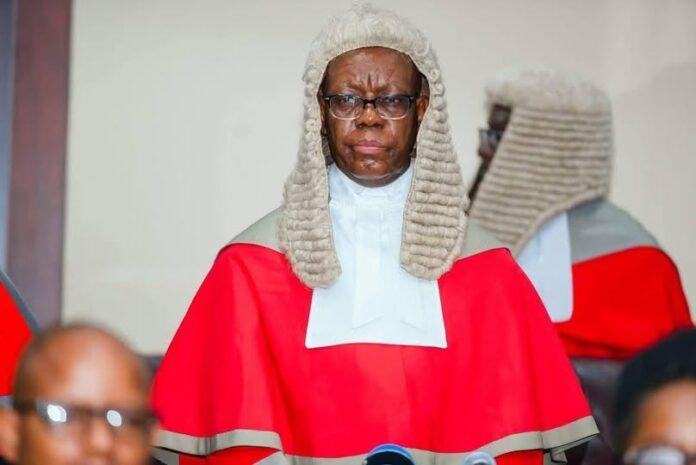Kutlo Motseta
9th May 2025
Concerns about the media independence, media sustainability, laws which inhibit media’s ability to keep citizens informed about government business were some of the key issues that were discussed when Botswana Editors Forum(BEF) convened stakeholders at Avani, on Friday.
Chief Justice, Gaolepelwe Ketlogetswe recognised the indispensable role of the media in keeping the other three arms – parliament, judiciary and the executive -accountable.
“The role of the media in the destiny of any nation, particularly a developmental state such as Botswana is, indispensable …The media’s role, amongst many, is to hold those in positions power and responsibility to account. In short the media is an oversight body,” Gaolepelwe Ketlogetswe, Botswana’s newly appointed Chief Justice.
“The job of journalist, requires courage to, amongst others, speak truth to power, investigate and unearth corruption,” he added.
The Chief Justice acknowledged that government carries a bigger purse than the private sector, which is a threat to its independence. If the private sector does not advertise their commercial products in the private media, it can be stifled as it looks to government to fund its operational costs.
Ketlogetswe said, “History will attest that when investigative journalism unearthed some inconvenient truths about those in government the response was to stop government advertisements in certain private media houses. The result has been a slow, but noticeable death in investigative journalism.”
“The greatest threat to press freedom is self-perseveration on the part of the private media in the form of self-censorship,” he concluded.
Duma FM Station Manager Donald Seberane highlighted his concerns about the ‘unjust’ media challenges that the private media’s challenges, complaining that government media is well resourced through the tax payer, thus it should not compete with the private media in soliciting advertising.
“[A] Government [media house] has no business in the media [advertising space],” he said.
Angela Quintal, Regional Director of Africa’s Committee to Protect Journalists (CPJ) who earlier met with the Minster for the State Presidency welcomed the importance of the new administration stated ambitions to improve press freedom and the media landscape in Botswana.
She said the CPJ will support the new administration’s efforts by engaging with the government and supporting the task force team.
She expressed hope for positive change following discussions with the presidency’s office.
“From our discussions this week, there is hope that president Boko’s leadership will bring change. His reform agenda and background as a human rights lawyer has been welcomed,” said Quintal.
Quintal said CPJ was not there to tell the government what to do, adding that the organisation’s publicly stated concerns stem from its 40-year research and first-hand observations of press violations across Africa and world, citing Zambian journalists as examples of what can go wrong.
“Having spent a week in Zambia prior to this trip, I can confirm that many Zambian journalists have experienced this first hand and feel a deep sense of betrayal, thus I would be remiss not to mention President’s Boko’s speech earlier this week to a conference of senior police officers, in which he claimed, without evidence, that about 90% of reporting in Botswana is false … There were other concerning remarks, accompanied by applause from the gathered senior police officers, that gave me pause. I understand this is not the first time the president has disparaged the press,” said Quintal.
Quintal urged the media to ensure that upholds its own professionalism standards of accountability, accuracy, integrity and ethics in order to ensure that it is not found wanting, as truthful and unfavourable evidence will defeat the purposes for which it exists.
She supported the local media’s concerns about the need to review laws which stifle its capacity to act with independence and hoped the government will address them.
“We urge the President to ensure, that, after 58 years, Botswana’s colonial-era laws on criminal defamation, insult and sedition are swiftly abolished in line with the resolution of the African Commission on Human and Peoples Rights. The same goes for provisions of more recent laws like the one on Cybercrime. Botswana has a valuable opportunity to join other African actions in reforming its laws to ensure journalism is not criminalized and that journalist’s privacy is protected,” said Quintal.









